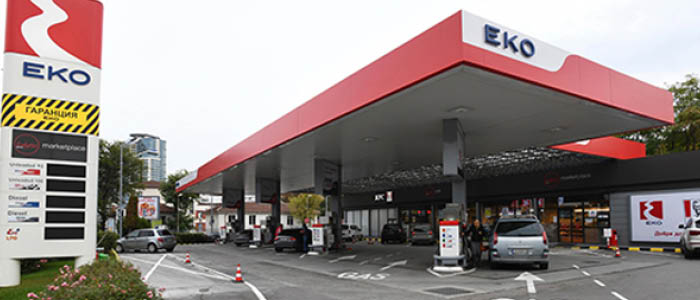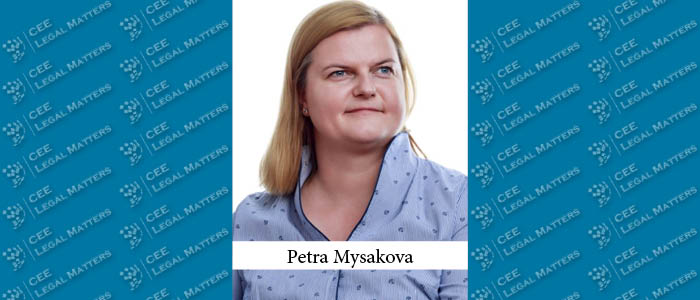In The Corner Office, we ask Managing Partners at law firms across Central and Eastern Europe about their backgrounds, strategies, and responsibilities. As the summer is likely to bring a brief lull, this time we asked: How do you tend to use the general downtime during the month of August?
CEELM Top 10: Most-Read Interviews
The CEELM Top 10 series looks back over the past ten years and celebrates the milestones we have achieved together. The list below highlights the most-read interviews, with a short description of each.
CMS Advises Enka on Photovoltaic Project Acquisition in Bulgaria
CMS has advised Enka on its EUR 8.4 million acquisition of a 40-megawatt photovoltaic project through the acquisition of the Town Up 8 company. Savova & Co reportedly advised the sellers.
Clifford Chance Advises Hillwood on Warehouse Parks Construction Financing
Clifford Chance has advised Hillwood on over EUR 89 million in financing from Bank Pekao for the construction of three warehouse parks in Poland. Reportedly, CMS advised Bank Pekao.
Closing: Kommunalkredit EUR 37.5 Million Financing for 63-Megawatt Senyo PV Plant Now Closed
On September 20, 2023, PHH announced that Kommunalkredit's EUR 37.5 million financing for the 63-megawatt Senyo photovoltaic plant in Hungary – commissioned by Green Source and Core Value Capital – (reported by CEE Legal Matters on August 7, 2023) had closed.
DLA Piper Advises on Roseville Office Building Sale
DLA Piper has advised the RV Ingatlan Befektetesi Alap fund on its acquisition of the Roseville office building in Budapest from Atenor.
Kinstellar Advises Electrolux on EUR 38 Million Sale of Hungarian Facility to Qvantum
Kinstellar has advised the Electrolux Group on the sale of its manufacturing facility in Nyiregyhaza, Hungary, to Qvantum for EUR 38 million. CMS reportedly advised Qvantum.
CMS Advises EKO Bulgaria on EUR 51 Million Framework Agreement with Ministry of Finance
CMS has advised Hellenic Petroleum Group subsidiary EKO Bulgaria in the EUR 51 million public procurement process organized by the Bulgarian Ministry of Finance for the delivery of fuel needed by the administration entities under its executive purview.
The Corner Office: Partnership Tracks
In The Corner Office, we ask Managing Partners at law firms across Central and Eastern Europe about their backgrounds, strategies, and responsibilities. As key steps, requirements, and timeline for becoming a Partner may vary from firm to firm, this time we asked: Does your firm have a formal Partnership Track and if yes, what does it involve?
Baker McKenzie Advises Innova Capital on Facilities Agreement with mBank and BNP Paribas Bank Polska
Baker McKenzie has advised Innova Capital on the facilities agreement with mBank and BNP Paribas Bank Polska to support the fund’s investment in R-GOL. CMS reportedly advised the banks.
CMS Advises Skoda on EUR 70 Million Tender for Eight Metro Trains to Metropoliten Sofia
CMS has advised the Czech consortium of Skoda Transportation and Skoda Vagonka on their successful participation in Metropoliten Sofia's BGN 134 million public procurement procedure for eight metro trains.
Closing: Macquarie Asset Management Minority Investment in Best in Parking Now Closed
On August 14, 2023, Binder Groesswang announced that Macquarie Asset Management's acquisition of a significant minority stake in Best in Parking AG (reported by CEE Legal Matters on May 10, 2023) had closed.
BCGL, CMS, and Deloitte Legal Advise on RiO Family Office Acquisition of PartyDeco and Financing
BCGL has advised Bank Pekao on the financing for RiO Family Office’s acquisition PartyDeco. CMS advised PartyDeco and its founders Mikolaj Gabryel and Agnieszka Gabryel, while Deloitte Legal advised RiO Family Office on both the acquisition and the financing.
Closing: Semperit Acquisition of Rico Group Now Closed
On August 1, 2023, Binder Groesswang announced that Semperit Aktiengesellschaft Holding's acquisition of the Austrian Rico Group (reported by CEE Legal Matters on May 9, 2023) had closed.
PHH and Dentons Advise Kommunalkredit on EUR 37.5 Million Financing for 63-Megawatt PV Plant in Hungary
PHH and Dentons have advised Kommunalkredit on a EUR 37.5 million financing for the 63-megawatt Senyo photovoltaic plant in Hungary. CMS reportedly advised the project's commissioners, Green Source and Core Value Capital.
Petra Mysakova Joins CMS Prague as Partner and Head of Banking and Finance
Former Allen & Overy Counsel Petra Mysakova has joined the Prague office of CMS as a Partner and Head of the local Banking and Finance team.
CMS and Spasov & Bratanov Advise on Sale of 25-Megawatt Chernogor PV Project in Bulgaria
CMS has advised Global Financial Consulting on the sale of the 25-megawatt greenfield Chernogor photovoltaic project to US investor Bulgaria Solar. Spasov & Bratanov advised Bulgaria Solar. Varadinov & Co reportedly advised the other sellers, Totally Green and Ki Energy.
CMS and Boyanov & Co Advise on YGY Industries Sale of 229-Megawatt Solar Plant to Rezolv Energy
CMS has advised YGY Industries on the sale of the 229-megawatt St. George greenfield solar plant in Bulgaria's Silistra municipality to Rezolv Energy. Boyanov & Co and, reportedly, Clifford Chance advised Rezolv Energy.

















